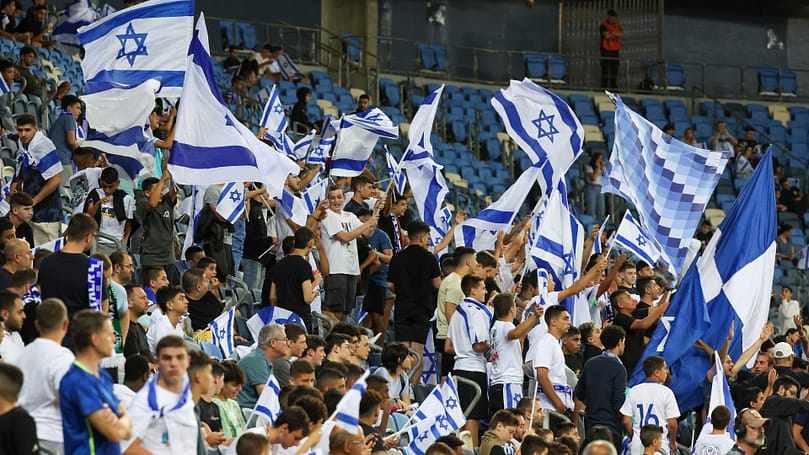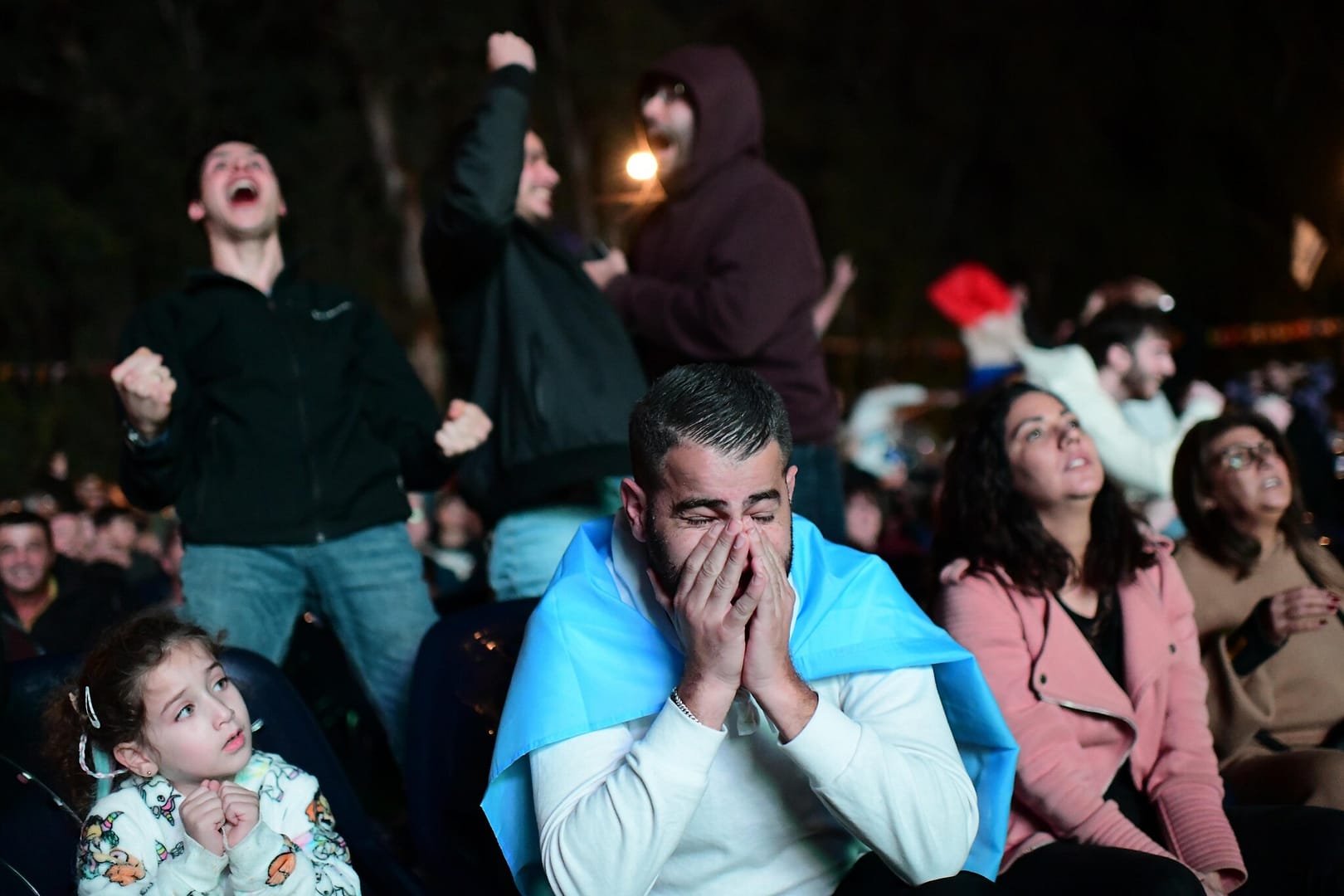♥**Israeli Soccer Fans Face Shocking Wave of Violence in Amsterdam: Uncovering the Full Story**
### Introduction
Amsterdam, known for its rich cultural heritage and welcoming atmosphere, recently witnessed disturbing scenes that have sent shockwaves across the international soccer community. Israeli soccer fans, who traveled to support their team in a match, became the unexpected targets of aggression and violence. This incident raises many questions about fan safety, security measures, and underlying tensions that seem to emerge around international sports events. Here, we dive deep into the series of events that led to this situation, reactions from both the Israeli and Dutch communities, and the broader implications for soccer fan safety worldwide.
### The Unfolding of Events: What Happened in Amsterdam?
In the days leading up to the recent match, Israeli fans were filled with excitement, ready to show their support for their team on foreign soil. However, reports suggest that tensions began to simmer early. What was supposed to be a celebration of athletic spirit quickly turned into a series of violent confrontations. Many fans reported being confronted in public places, bars, and even near stadium entrances.
According to eyewitness accounts, groups of individuals targeted Israeli fans in what some claim were coordinated attacks. Fans described being physically attacked, verbally harassed, and intimidated by groups of locals who seemed intent on hostility. Local law enforcement soon stepped in, but not before multiple fans reported injuries and significant trauma from the ordeal.

### Key Incidents Leading Up to the Violence
1. **Pre-Match Tensions and Social Media Stirrings**
– Leading up to the match, some fans noted a rise in hostile comments on social media platforms, where fans from both sides exchanged heated messages. The inflammatory nature of these interactions fueled anxieties and may have played a role in increasing tensions between the fan groups.
2. **Reports of Assaults in Public Places**
– A series of incidents were reported in Amsterdam’s public squares and popular tourist spots. According to sources, Israeli fans, easily recognizable in team jerseys, became the targets of verbal abuse and, in some cases, even physical assault. Police records indicate multiple cases filed for harassment and minor assaults.
3. **Confrontations Near the Stadium**
– As game day approached, tensions escalated around the stadium, with Israeli fans facing hostility from certain groups of local supporters. Security forces were deployed, yet the confrontations reportedly persisted, with fans alleging that some of the locals actively sought to provoke them.
### Response from Israeli and Dutch Officials
The violent incidents quickly caught the attention of Israeli and Dutch officials, who condemned the violence and called for swift action. Israel’s Ministry of Foreign Affairs expressed concerns for the safety of its citizens abroad, while also urging fans to remain vigilant. The Dutch government, along with Amsterdam’s city council, promised to investigate the incidents thoroughly and work towards preventing similar situations in the future.
Also read: Israeli soccer fans targeted in wave of violence in Amsterdam
#### Statements from Key Officials:- **Israeli Foreign Ministry:** “We are deeply troubled by the violence faced by our fans abroad. Sports should be a celebration of unity, and we urge all involved parties to uphold respect and safety.”
– **Amsterdam Mayor’s Office:** “The safety of all visitors in Amsterdam is a priority. We will not tolerate acts of violence or discrimination within our city. Law enforcement is investigating the incidents thoroughly.”
### Fan Reactions: Voices from the Ground
Israeli fans, many of whom had never experienced such hostility, were left traumatized by the events. Several fans shared their experiences on social media, detailing their disappointment and fear.
A fan named Rami described his experience as follows: “We came to Amsterdam to support our team and enjoy the city’s famous hospitality. We never expected to feel unsafe here. The whole experience has changed our perception of what it means to travel for a game.”
Local fans and citizens of Amsterdam have also expressed disappointment, with some pointing out that these violent acts are not representative of the city’s values. Amsterdam has a long history of hosting international events, and the incidents have sparked discussions among residents about the need to foster a more inclusive environment.
### The Growing Issue of Violence in International Soccer
Unfortunately, this is not the first time soccer fans have encountered violence abroad. International soccer, while a bridge between nations, often brings with it heightened emotions and national pride that can lead to unintended consequences.
Experts suggest that the rise in fan violence is influenced by several factors:
– **Increased Rivalries:** As the popularity of soccer grows globally, so do rivalries between fans.
– **Social Media’s Role:** Online platforms can fuel tensions by allowing people to express unchecked opinions, escalating disputes before fans even set foot in the host city.
– **Political Tensions:** In some cases, geopolitical differences add a layer of tension to international sporting events.
### Lessons Learned and Safety Measures for Future Events
1. **Enhanced Security Protocols**
– Both national and local law enforcement agencies may need to increase their focus on safeguarding international fans. One approach could involve closer collaboration with teams, embassies, and fan clubs to anticipate and mitigate risks.
2. **Social Media Monitoring**
– Authorities might consider monitoring social media platforms in the days leading up to international matches to identify potential flashpoints and intervene if necessary. This could help prevent online altercations from spilling over into real-life confrontations.
3. **Encouraging Positive Fan Interactions**
– Hosting events that bring fans from opposing sides together in neutral, celebratory settings might help diffuse tension. Programs that encourage cultural exchange could foster camaraderie rather than animosity.
### The Way Forward: Protecting Fans and Promoting Peaceful Competition
The events in Amsterdam serve as a reminder that fan safety must be a top priority at international sports events. Ensuring fans feel secure should be a collective responsibility shared by host cities, local law enforcement, and even the fans themselves. The violence faced by Israeli fans has prompted reflection, and there are calls for policies that focus on the safe, respectful celebration of soccer.
With a rise in global tourism centered around sports, fan safety and mutual respect become essential for the future of international soccer.
Eyewitness Accounts and Social Media Reactions
Eyewitnesses, including both Israeli fans and locals, shared their accounts of the disturbing incidents on social media. Video clips and images documenting the confrontations circulated widely, sparking debates and fueling outrage from both sides. For some Israeli fans, the experience was a stark contrast to the hospitality they had anticipated.
One fan shared: “We came here to support our team, excited for a new experience. But we didn’t expect to be treated this way. It was scary and unsettling.” Meanwhile, Dutch citizens and other fans in Amsterdam expressed dismay at the violence, emphasizing that the actions of a few should not define the city’s welcoming spirit.


Leave a Reply